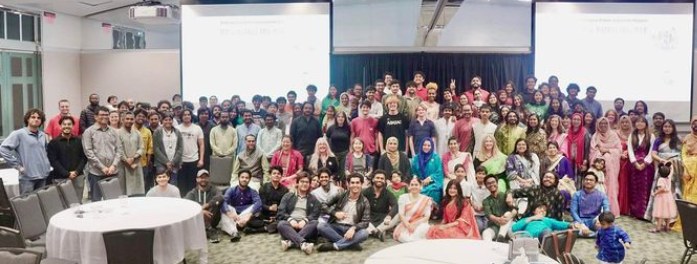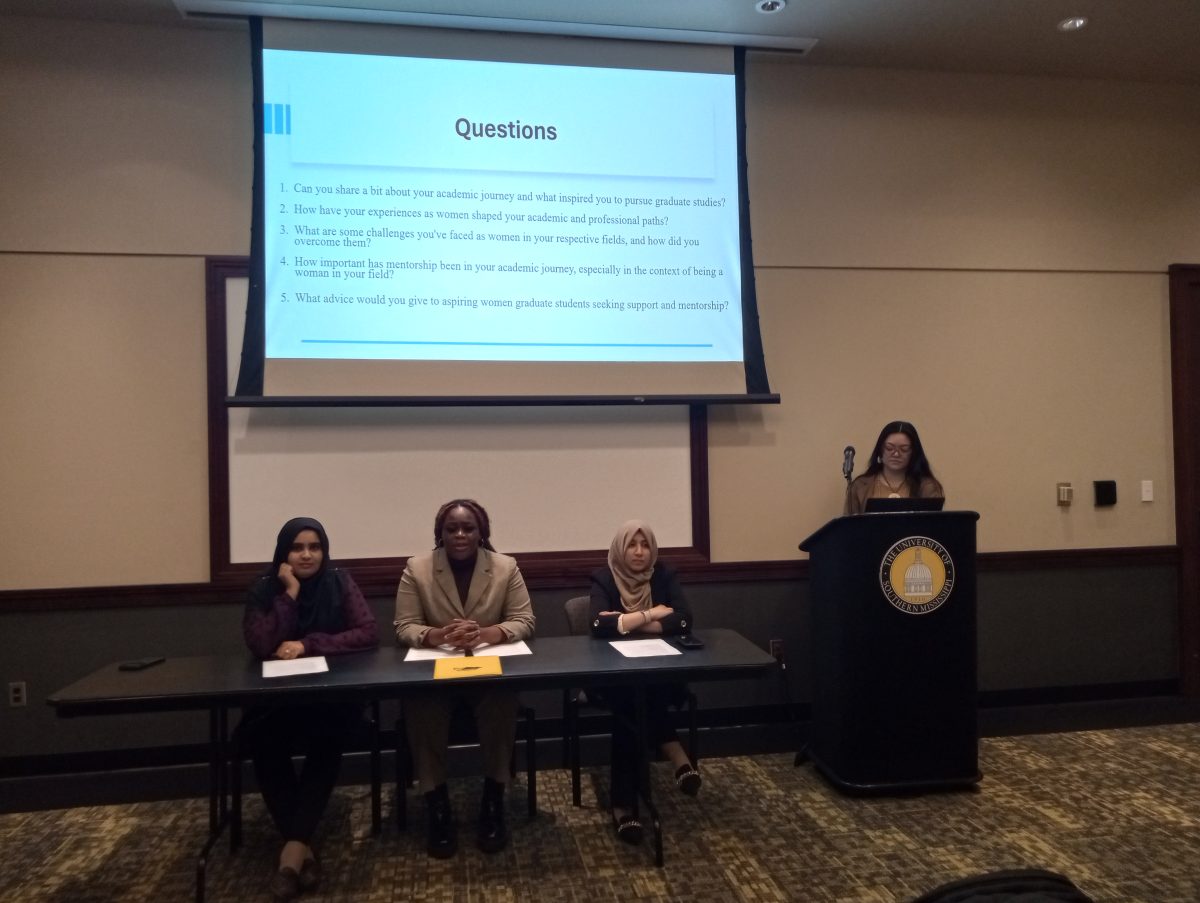The Student Government Association (SGA) and the Speech and Debate team paired up on Wednesday to discuss the new legislation going through SGA Senate that would create a smoke-free campus policy in the near future.
Debaters Lakelyn Taylor, Jonathan Bridenbaker and Emma Valentine presented three sides of argument in traditional debate style, with a five minute introduction argument, cross-examination by their peers and a one minute closing argument.
Valentine presented her argument in favor of the status quo, which is the current policy. According to the university website, this policy requires the use of nineteen smoking zones across campus and bans the use of traditional and electronic cigarettes outside of these zones. Valentine argued the system in place was not broken, but admitted that there was room for improvement. She said there were three possible outcomes to the smoking ban: smokers that were chemically addicted would go through nicotine withdrawals, that smokers would leave campus in order to smoke and that chemically dependent smokers would deviate from policy and continue to smoke on campus.
Valentine instead pushed to raise awareness of nicotine addiction and create a culture to end smoking by choice. This would entail nicotine replacements being readily made available on campus and the formation of support groups to encourage students to quit smoking. She said even though smokers are the minority, their rights should not be ignored. “No one (should be) given more rights than the other,” she said.
Taylor, also a member of SGA Senate, argued from the standpoint of a smoking ban, which is the current legislation moving through the Senate. Her argument was based off of the idea that the current smoking policy was meant to be a timeline with the end goal of becoming a non-smoking campus, but was no longer effective.
She said Senate is trying to follow through with the policy that is already in place instead of creating a new policy. She emphasized the possible health benefits of quitting smoking, discussed the beautification efforts of removing the masses of cigarette butts and said the health needs of the students must trump the personal choices of the smokers. “(We) can’t enforce policy to go with the minority and not the majority,” Taylor said.
Bridenbaker went further, arguing not only for smoke free but for expansion into a completely tobacco-free campus. He passionately spoke out about tobacco-related health issues and claimed that every hour, 50 people would die of tobacco-related conditions. “This legislation is not going to be enough,” he said.
Bridenbaker pushed for students to break the “cultural norm of tobacco use” and speak out against all forms of tobacco, including e-cigarettes and chewing tobacco. He called e-cigarettes a “cocktail of carcinogens” and claimed that inhaling the vapor released by these products is just as harmful as traditional tobacco smoke. He encouraged his opponent’s means to an end by saying that making nicotine replacements and support groups could become a part of the new policy and campus environment.
After the debate, several senators joined the debaters onstage to answer questions from the audience about the issue and to clear up any misconceptions about the legislation in question. SGA Vice President Kyle Stoner emphasized that this debate would not determine the vote of the bill, but instead helped senators hear the voice of their constituency on the issue.
The legislation is still being hotly discussed in Senate with no final vote in sight. If passed through Senate, the student body would participate in a referendum to determine whether the policy would or would not go into effect. If passed through the referendum, it is likely that the policy would not immediately go into effect but would go into effect at a later date such as fall of 2016.
“We know this is a huge issue on campus and will influence this university’s history,” said Stoner. “The whole point (of the debate) was to get (the students’) opinion.”



































